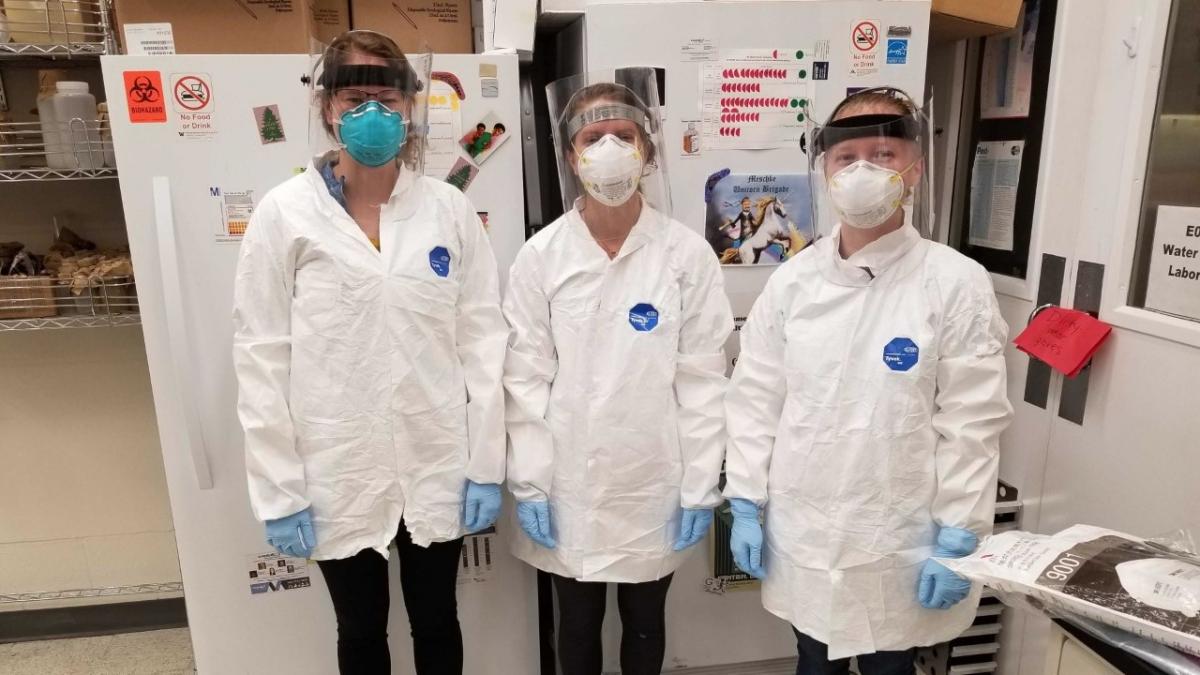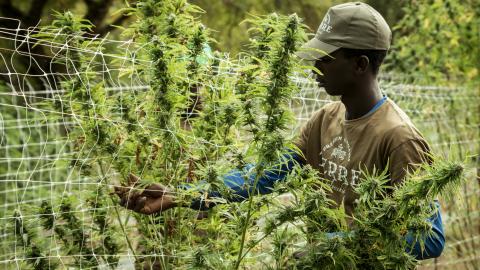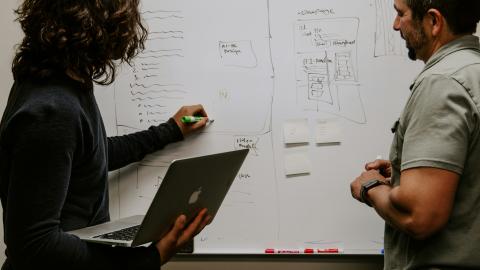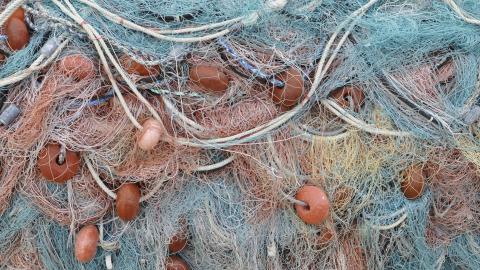
May 18, 2020
The transition to remote teaching and work is a challenge. However, trainees, faculty and staff at the Northwest Center for Occupational Health and Safety (NWCOHS) are doing their best to make it work.
With classes fully online for the spring quarter, trainees have adjusted to the new reality of online lectures and remote lab training. In a short mid-quarter poll, trainees responded that the transition to remote learning has been reasonably smooth, although not the same as in-person learning.
Trainees were generally positive about online instruction, noting that it is going “…pretty well considering the state of the world.” However, others expressed some dissatisfaction with online instruction: “[It’s] fine but messy, and [I am] afraid that some key learning points are being missed.”
In addition to online instruction, trainees are using Zoom for meetings with professors, thesis and dissertation committee members and teaching assistants. Most acknowledged that while Zoom cannot replace in-person interactions and the technology has a bit of a learning curve, meetings are easy to schedule and the platform provides a convenient and efficient way to connect.
NWCOHS trainees are also working on their own response to the pandemic, developing a blog post that offers perspectives from each of their disciplines.
Fieldwork and research
Student fieldwork activities are mostly on hold. Luckily, this has not had much impact on students’ ability to conduct their work. Marty Cohen, principal lecturer and assistant chair in the UW Department of Environmental & Occupational Health Sciences (DEOHS), said: “The timing is actually good for our students. During the spring of their second year, [master’s students] should be writing up their thesis, not doing fieldwork.”
For students with ongoing research and data collection, many have been lucky to be able to continue their work. Sarah Philo, DEOHS PhD student and NWCOHS trainee, explains that her “…lab work has rapidly transitioned to focus on SARS-CoV-2 surveillance in wastewater around the Seattle area.” Recognized by the UW as essential personnel, Philo says she and her teammates are doing as much data analysis as possible at home, though they are also able to be in the lab to run experiments. They follow social distancing guidelines whenever possible in the lab and don masks and other PPE when distancing is not possible.
Claire Schollaert, DEOHS PhD student and NWCOHS trainee, notes: “I've been lucky in that my work has been minimally impacted by COVID-19. Most of my current research focuses on climate-related exposure assessment using modelling and remote sensing methods with no ongoing or upcoming fieldwork plans.”
Trina Sterry, DEOHS manager of Student and Academic Services, recognizes the difficulties that students are facing but also points to their resiliency.
“Based on my interactions with our current students, I'd say that they are very motivated to use their skills and help with the pandemic in any way they can,” she said. “Students who have travelled back home are reaching out to their local health departments to volunteer. That's not to minimize the concern and anxiety that many students are experiencing as well, but they are definitely feeling called to action.”
Recruitment
The COVID-19 crisis hit in the middle of an active DEOHS student recruitment season. The UW moved to online classes shortly after the department’s admitted student visit day in late February. Impressively, 40 students committed to DEOHS for master’s and PhD programs starting in fall 2020.
Sterry puts that number in perspective: “Forty is high for us. Over the last 10 years, that number has averaged about 28.” The Industrial Hygiene program saw a significant increase in students accepting offers of admission. In 2019, four new master’s and PhD students joined the program (three of which were funded by NWCOHS). In 2020, 12 master’s and PhD students accepted offers of admission (seven will be funded by NWCOHS).
Sterry acknowledges the numbers of students who actually show up in September may change. “Usually we don't have any attrition from our acceptance group, but this year could be different.” She says that DEOHS is working hard to keep the students engaged and connected in hopes they will still attend UW in the fall.
Resources
DEOHS has assembled resources for workers and employers related to the COVID-19 crisis. Learn more about how DEOHS is responding and the resources available:
- https://osha.washington.edu/pages/covid-19-resources-employers-workers
- https://deohs.washington.edu/covid19
- https://deohs.washington.edu/pnash/blog/responding-covid-19
- https://deohs.washington.edu/nwcohs/blog/covid-19-what-employers-and-workers-need-know
- https://deohs.washington.edu/hsm-blog/how-clean-green
Photo credit: Alex Kossik




